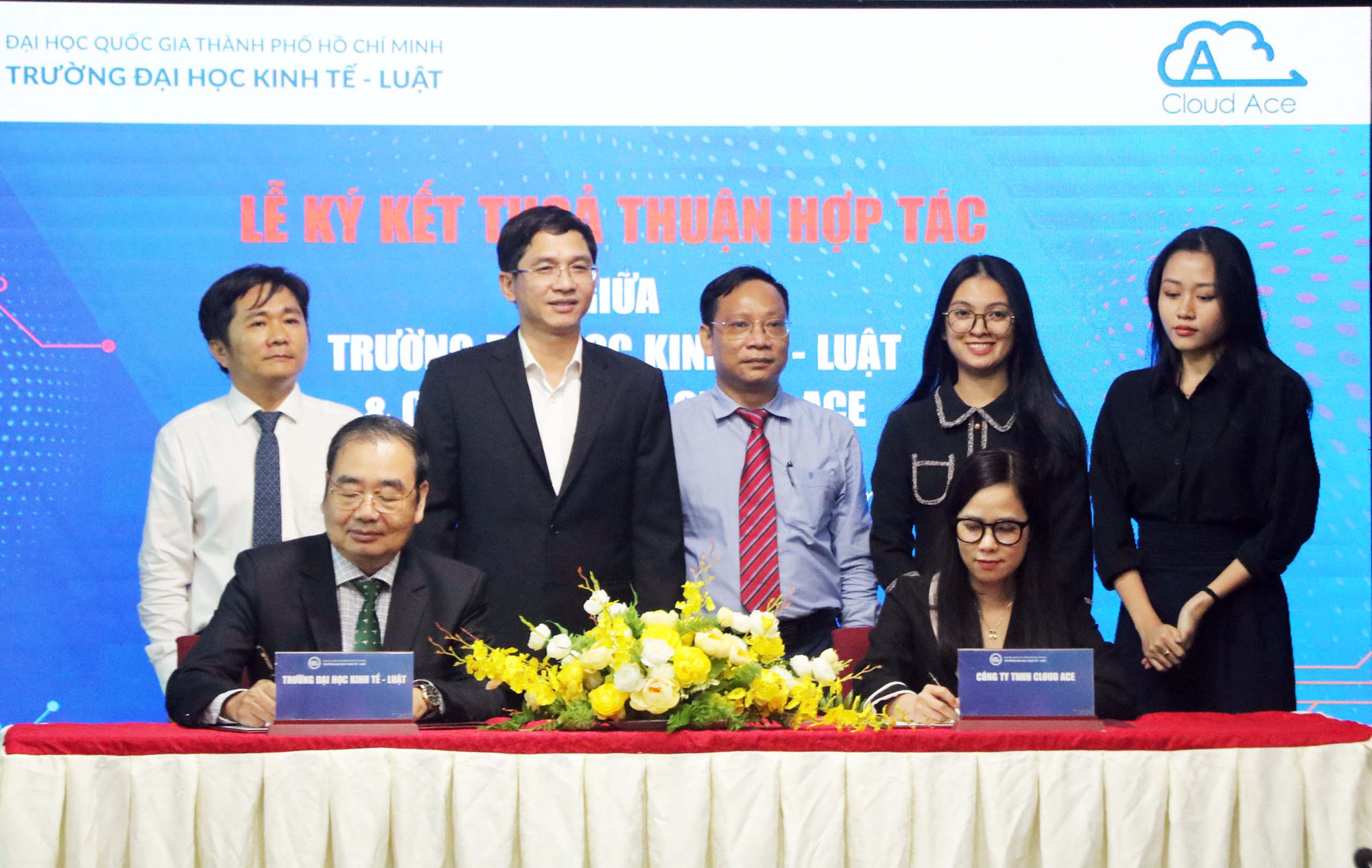
University of Economics and Law (Ho Chi Minh City National University) signed a Co-op training program with businesses on the afternoon of June 11 - Photo: TRONG NHAN
The "Co-operative Education" (Co-op) model combining training between universities and businesses was discussed by experts in a seminar at the University of Economics and Law (Ho Chi Minh City National University) on the afternoon of June 11.
Associate Professor Dr. Hoang Cong Gia Khanh, Principal of the University of Economics and Law (Ho Chi Minh City National University), said that from the 2024-2025 school year, the school will implement a Co-op training program for two majors: financial technology (Fintech) and management information systems (MIS). It is expected that each major will recruit about 30 students per year, who are excellent students.
In this program, students will be sent to enterprises to study from the first year. Some courses instead of studying at university will be transferred to training at enterprises, and at the same time, enterprises will participate in the evaluation process.
According to Mr. Khanh, this new approach aims to narrow the gap between training and practice, as currently most students have to wait until their third or final year to do internships at businesses, with short internship periods. "Students will have better opportunities to access the labor market, and businesses will have the opportunity to evaluate students during their internships to recruit staff," said Mr. Khanh.
Associate Professor Dr. Nguyen Anh Phong, Head of the Finance and Banking Department of the University of Economics and Law (Ho Chi Minh City National University), shared that in the new program, in addition to basic courses, finance courses, and technology courses, there will be additional Co-op courses.
Some of the Co-op modules of the Fintech major are expected to include customer structure and communication, corporate structure and culture, innovation and entrepreneurship, information security processes in enterprises, business information systems, business and marketing strategies in enterprises, professional ethics standards in enterprises, etc.
Dr. Le Hoanh Su, head of the information systems department of the University of Economics and Law (Ho Chi Minh City National University), said that it is expected that students can visit businesses in many batches during the 4 years of study, 2 batches in the first and second years (each batch is 4 weeks) and 2 batches in the third and final years (each batch is 8 weeks).
For example, in the management information systems industry, in the first year, students are mainly introduced to the company, its development orientation, corporate culture, career opportunities and recruitment requirements. In the second year, the company can provide requirements, tasks, and topics that require analysis and evaluation.
In the third year, businesses will give out assignments requiring the collection and processing of data on business management issues, and require proposals for solutions, applications of Data Science, MIS, AI, etc. Businesses can participate in evaluating 20% of students' results, while schools evaluate 80%.
And in the final phase, the company can assign students topics, practical work in teams, groups or individuals according to the actual tasks of the company as a full-time intern. The company can participate in evaluating 40% of the student's results, the school evaluates 60%.

Representatives of many businesses participated in giving comments on the Co-op training program on the afternoon of June 11 - Photo: TRONG NHAN
Is it okay to do business internship too early?
Mr. Le Thanh Tam, General Director of International Data Group (IDG) in Vietnam and Southeast Asia, said that the Co-op training model should first be carefully calculated in terms of time. If you only go to a business for a few weeks to a month, it will be difficult to understand the business culture. Not to mention, some businesses are not willing to accept students in such a short time, requiring the school to work closely with partners.
In addition, according to Mr. Tam, it is necessary to clearly define the training program that the school will combine with the business. In reality, students of many majors, after completing 4 years of study, still have to spend 1-2 years retraining in businesses, so it will be very difficult for first-year students to take on some practical tasks at the business.
Mr. Duong Van Thinh, CEO of CEMTES International, added that it would be difficult for some businesses to provide similar assessment methods to schools. If the assessment methods are not similar and based on the school's common standards, it will easily put students at a disadvantage.
Source: https://tuoitre.vn/truong-dai-hoc-cho-sinh-vien-den-doanh-nghiep-hoc-tu-nam-nhat-20240611192858389.htm



![[Photo] General Secretary To Lam arrives in Minsk, begins state visit to Belarus](https://vphoto.vietnam.vn/thumb/1200x675/vietnam/resource/IMAGE/2025/5/11/76602f587468437f8b5b7104495f444d)

![[Photo] General Secretary To Lam concludes visit to Russia, departs for Belarus](https://vphoto.vietnam.vn/thumb/1200x675/vietnam/resource/IMAGE/2025/5/11/0acf1081a95e4b1d9886c67fdafd95ed)


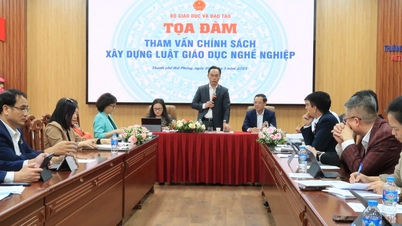

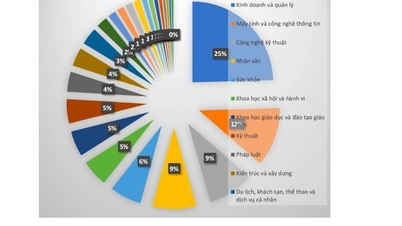







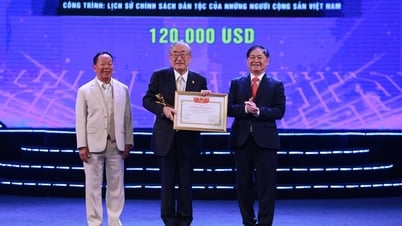















![[Photo] National Assembly Chairman Tran Thanh Man attends the Party Congress of the Committee for Culture and Social Affairs](https://vphoto.vietnam.vn/thumb/1200x675/vietnam/resource/IMAGE/2025/5/11/f5ed02beb9404bca998a08b34ef255a6)










































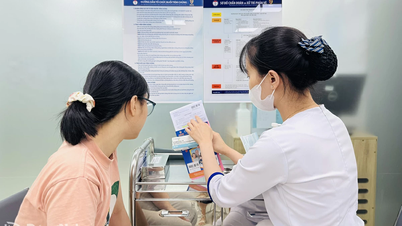



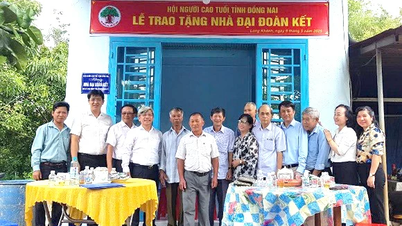












Comment (0)